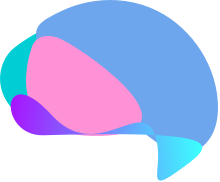When it comes to seeking self-help to support our mental health, the question of whether one needs a psychologist, psychiatrist, counsellor or coach is often the first stumbling block. Read more to find out what would be best for you.
CBT for Anxiety

Anxiety?
There are many different ‘faces’ of anxiety, such as fear, phobias, panic attacks, health anxiety, and OCD to name a few.
CBT for anxiety is highly effective. In sessions, you will learn about what anxiety is and how to manage it. Anxiety is a normal body response to threat, and the threat can be external or internal.
If the threat is external, then your body responds with an adrenaline response preparing you to fight or escape (known as a “fight or flight” response) and is one of the fundamental survival instincts. Internal threat, however, is usually a thought or an image that is in the mind. The combination of the thought and the release of adrenaline, can be perceived as real danger when actually there is no real threat.
Anxiety is a bias towards the over estimation of a perceived threat. In CBT therapy, you will learn how to separate a real threat from a hypothetical one, and learn the coping mechanisms to help you keep calm when your brain is throwing those intrusive thoughts into your mind.

There are a number of anxiety disorders that CBT is helpful for, these are:
- OCD (obsessive compulsive disorder)
- HA (Health Anxiety/Hypochondriasis)
- GAD (General Anxiety Disorder)
- BDD (Body Dysmorphia)
- Eating disorders
- PA (Panic Attacks or Panic Disorder)
- and many others.
CBT can help you to understand and manage these issues in an effective way.
How does it work?

Book your first therapy session
Often it is difficult to pinpoint what is exactly the problem. Don’t worry about that. Just simply book your first appointment, and a member of our team will advise you on providing the best way forward.
Access convenient and effective therapy
We offer help remotely meaning you don’t have to leave your home. We only provide support that is evidence-based, backed up by vigorous research, providing you with a clear strategy and support that guarantees success.
Take the next step towards a healthier mind
We offer personal aid, supporting you on your journey to a better and happier life. A highly trained member of our team will carry out your assessment and provide you with a bespoke plan going forward.Frequently Asked Questions
How do I know if CBT is right for me?
CBT is a therapy form where you would learn to become your own therapist, this is learning to understand and monitor your symptoms. It also includes learning new skills, such as increasing confidence in social interaction, learning to be more assertive, gaining better control over emotions and thoughts including learning to manage anxiety, anger and other emotions.
How do I know if EMDR is right for me?
EMDR is a therapy that can be applied with very little language use. There is not much talking in EMDR therapy. It can be applied through drawing or imagining (play and drawing is often used when treating children). EMDR is good for traumas, fears and phobias and some beliefs that form self esteem.
What do I need to know before I get started?
You don't really have to know anything before, our team is trained to assess appropriately and can guide you throughout. It may be good to read about these different forms of therapy so you know what to expect. In therapy you may choose to have a notebook where you record your recovery and practice your new skills.
How much does it cost and how long will it take?
Therapy is usually applied to solve a problem and reduce the symptoms. Therapy is usually prescribed by a set of sessions that are linked to achieve a goal. Therapy will take as long as these goals are achieved. Mild and very mild problems would take about 4-6 sessions (around £ 600). An average therapy course for a common problem usually takes about 8-12 sessions(around £ 1200). In some cases it can take more sessions but it all depends on the complexity and severity of the problem. CBT is a short term therapy, so usually there are breaks suggested to be had after having about 16-20 sessions. This is good for consolidation learning. Therapy starts with understanding why the symptoms are present, then the goals are set and only after that the learning and changing starts. In CBT, ‘homework’ tasks (practicing new skills), determine how quickly the therapy would work. Evidence shows that if not practicing anything in between sessions then nothing much would change at all. The Positive Mind Practice team is working on putting together treatment course packages for most common problems that many people struggle with. This is useful as it would be at reduced cost.
How we can help you Our Latest News & Advice
Not sure what you’re looking for?
Arrange a chat with our specialist team

